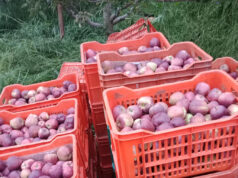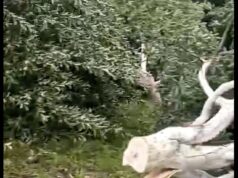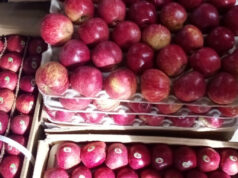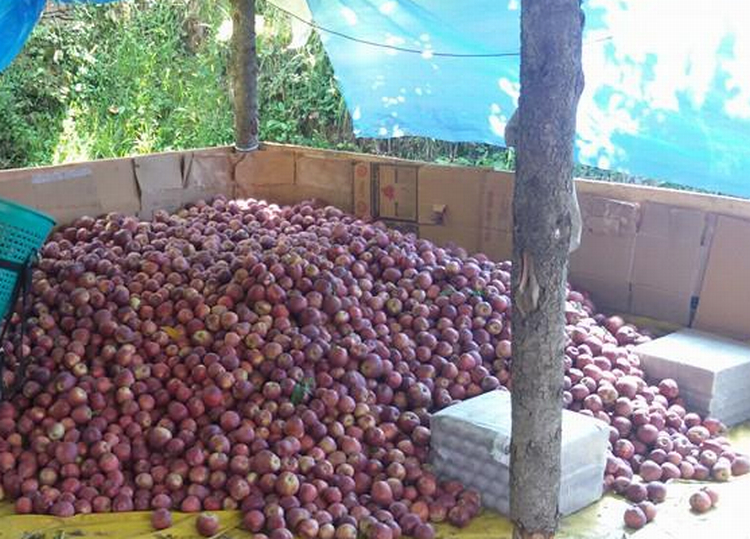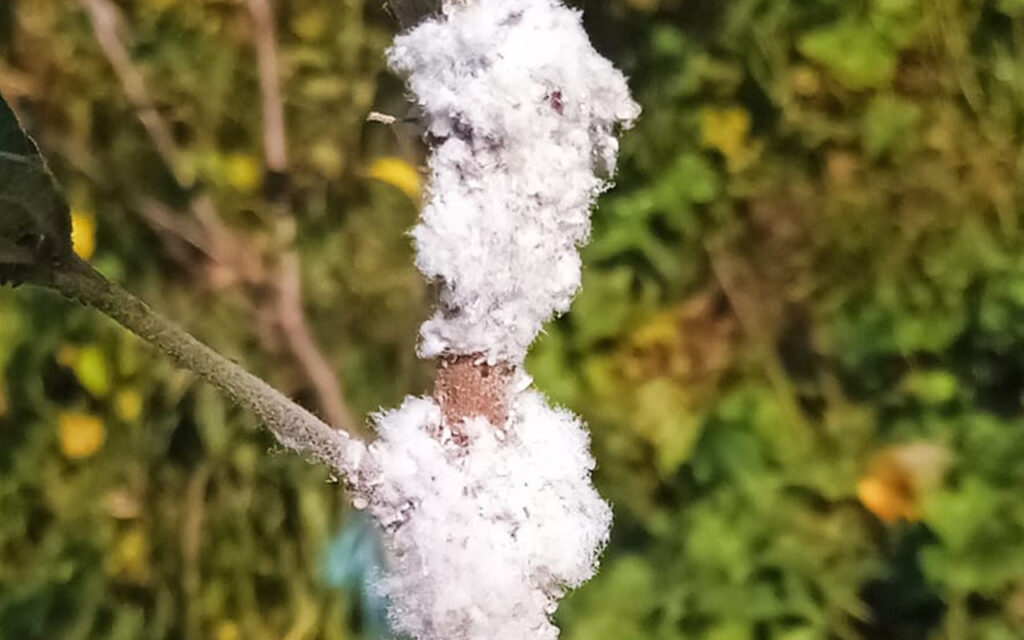
Apple growers in Shimla’s prominent regions such as Theog, Rohru, and Kotgarh are grappling with a severe outbreak of woolly aphid, a sap-sucking pest that is rapidly spreading through the orchards. This pest, characterized by its cotton-like masses on tree trunks and branches, has begun to weaken apple plants, threatening both the health of the trees and the quality of the fruit. If left uncontrolled, the infestation could significantly affect apple production in the region, which is already reeling under other challenges.
The woolly aphid infestation has come at a crucial time for apple growers. Despite efforts to contain the pest using traditional methods, its spread appears to be accelerating, leaving farmers worried about the future of their orchards. Many are calling for immediate intervention, including scientific solutions and government support, to manage the outbreak before it leads to widespread damage.
Gopal Singh, a grower from Ghog Village in Theog, expressed his concern over the rising infestation, stating, “The woolly aphid is spreading fast. We’ve seen the white, fluffy patches on the trees, and despite our efforts to control them, they keep multiplying. The trees are weakening, and we fear that production will take a hit if this continues.”
Balvinder Gaktu, who cultivates apples in Tikker, Rohru, echoed similar worries, saying, “Entire sections of our orchards are now affected. The aphid attacks the young shoots, and if it reaches the roots, the damage is irreversible. We’re struggling to keep it under control.” Raghav from Kotgarh added, “This season is worse than previous years. The aphids are everywhere, and we’re concerned about the quality of the apples. The pest is lowering the vitality of the trees and affecting fruit development.”
Vikas Machhan, another grower from Rohru, highlighted the economic implications. “With woolly aphids damaging the plants, the apples don’t grow to their full potential, which reduces their market value. We need better guidance to manage this pest before it spreads further and impacts our sales.”
Understanding the Woolly Aphid Problem
Woolly aphid is a pest known for attacking apple trees by feeding on their sap, leading to the weakening of the plants. The pest forms cotton-like clusters on the bark and branches, but more alarmingly, it can also target the roots, leading to more severe damage if left untreated. Woolly aphids not only harm the trees but also inject toxins into them, which further reduces the plants’ ability to produce healthy fruit.
Research suggests that woolly aphid infestations are more common in warm, dry weather conditions, which allow the pest to reproduce quickly. The pest’s rapid reproduction rate—several generations can be produced in a year—makes it a persistent threat, particularly in areas where temperatures favour its development.
Prevention and Control Methods to combat the Woolly Aphid
Horticultural experts recommend integrated pest management (IPM) to combat the woolly aphid problem. This includes regular monitoring of orchards to catch infestations early, pruning infested branches, and ensuring orchard sanitation by removing weeds and plant debris that can harbour pests.
Biological control is one of the most effective measures, with lady beetles and parasitic wasps being natural predators of woolly aphids. These beneficial insects can significantly reduce pest populations without harming the plants. Chemical control, while sometimes necessary, should be used judiciously to avoid pest resistance. Systemic insecticides and horticultural oils are common treatments, but they should be rotated to maintain effectiveness.
Good tree nutrition and proper orchard hygiene also play a crucial role in preventing infestations. Healthy trees are more resistant to pests, and maintaining clean, debris-free orchards limits the breeding grounds for woolly aphids.
Dr Rakesh Kumar, Department of Entomology, Dr YS Parmar University of Horticulture and Forestry, Nauni, detailed explanation of Woolly Aphid in Apple plants, its symptoms and its management
With the woolly aphid infestation posing a significant threat to Shimla’s apple orchards, growers are calling for urgent action. While traditional control methods are in use, the rapid spread of the pest demands a more robust and scientific approach to protect the livelihoods of apple farmers and ensure a healthy yield
Effective pest management strategies, supported by research and expert guidance, are crucial in tackling the infestation. Continuous monitoring, combined with biological and chemical controls, can help safeguard the orchards and ensure that the region’s apple production remains unaffected by this growing threat.





